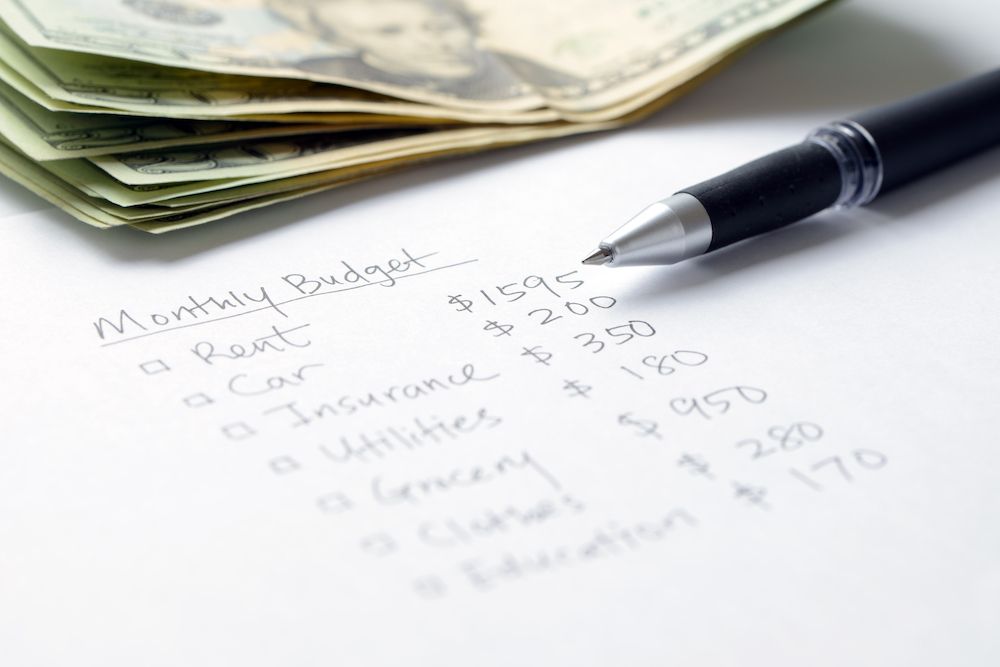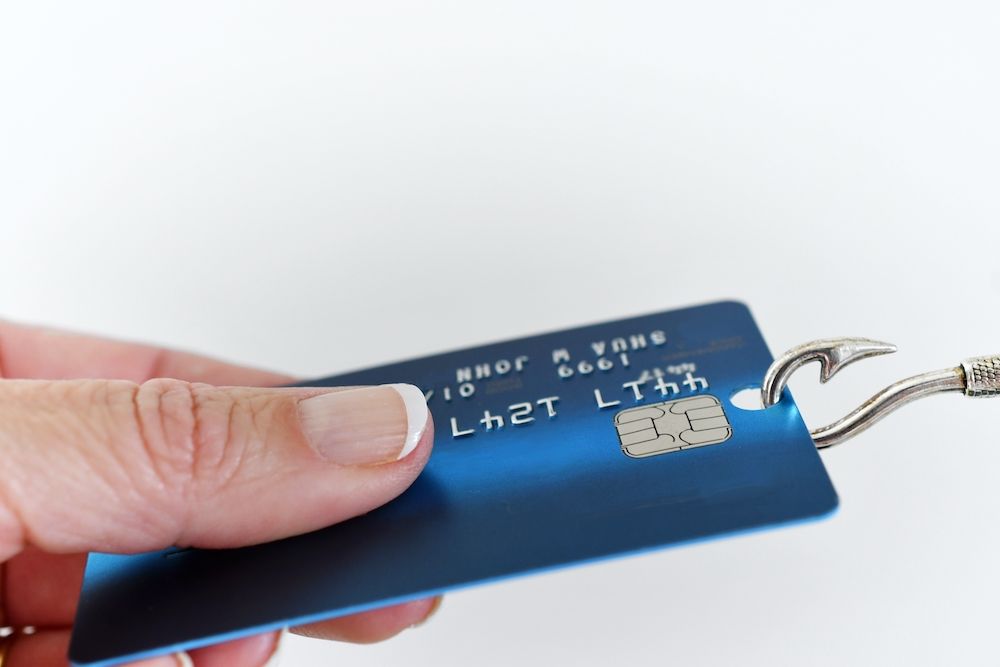Savings
Financial Basics for Young Adults
At Origin Bank, we believe the key to long term financial health starts with financial literacy. When young people understand the basics of money, they stand a much better chance of making good money management decisions that last a lifetime.
To help equip those who are just beginning their financial journey, Origin is sharing information on banking and finance fundamentals such as understanding financial institutions, the importance of budgets, the difference between debit and credit cards, and how to keep your information safe from fraudsters.
Financial Institutions 101
Banks play an important role in the economy and serve as the main places where people conduct their financial business. They provide services like savings and checking accounts for individuals, small and large businesses, and non-profit organizations. They loan money for buying things like cars and houses, and they help people save for retirement.
Sometimes people find banks intimidating, but the reality is that banks are staffed with friendly, knowledgeable professionals who are driven by a desire to serve their customers. Banks provide essential services designed to help you learn how to best manage your money and achieve your financial goals.
Banks offer convenient options for handling your individual financial needs. In-person services at your local banking center provide a personal touch, while online banking and mobile apps allow customers to bank from anywhere, 24 hours a day. ATMs offer 24/7 access to check your account balances and make cash withdrawals. Some ATMs will also allow you to make deposits.
Remember that bankers are there to serve as a resource for you and your money. Get to know the people who work at your local banking center and ask them for help in understanding your financial needs. They are available to help you and have the knowledge and resources to guide you towards making smart financial decisions.
Budgeting Basics
For many people, just saying the word is stressful. How do you make a budget? How do you follow one? Knowing how budgets work is absolutely critical for good financial management.
Budgeting is not about constantly saying “no” every time you want to buy something. Rather, it's putting yourself in control – tracking your spending, setting goals and reaching them. Your budget ensures you always have enough money for the things you need and are important to you. Following a budget can keep you out of debt, and it can help get you out of debt if you owe money.
There are a number of ways to learn how to create a basic budget and tools to help get you started, such as the Personal Financial Management tool from Origin Bank. It’s easier than you might think and is your best resource for helping you achieve your financial goals.
To create a budget, first start with the money you currently make or have on-hand. List everything you have in your bank account, cash you may have saved from birthdays, holidays or other special occasions, and regular income you earn from a job.
Next, list all your expenses – everything you buy or spend money on each month. Include the cost of your food, fuel, toiletries and medications, as well as any bills you’re responsible for paying such as monthly rent, utilities, or car insurance.
Total all the items on each list. This will show you exactly how much money you have coming in and going out.
Now go back to your list of expenses and prioritize them. Which items must be paid each month and which are considered luxury or non-essential items? Subtract what you absolutely must pay each month from your total income to determine how much you have left over to spend on non-essentials. You can also use this number to decide how much money you want to dedicate to saving each month.

Keep a list in a notebook or create a simple spreadsheet and spend a few minutes each week reviewing and updating your income, spending, and savings. As you watch your savings grow over time, pat yourself on the back for the progress you’ve made and the control you have over your money.
Creating a budget is an important tool in helping you establish good money management skills. To expand your financial education, check out Origin’s article on how to set financial goals.
Checking and Savings Accounts
Checking and savings accounts are two of the most common services banks provide. But why do we need them? And why put your money in a bank in the first place? You could keep all your money in cash, but cash is vulnerable to being stolen or lost and can be damaged in a disaster like a fire or flood.
Depositing your money in a bank is a much safer option. Banks follow very strict rules to keep your money safe. As of 2020, the Federal Deposit Insurance Corporations (FDIC) insures deposits up to $250,000 per depositor for each ownership category as long as the institution is a member firm.
At banks, most people keep their money in checking accounts and use them for buying everyday items like food or paying monthly bills. Using a checking account is pretty simple. For example, if you’re buying groceries, you write a check or swipe your debit card for the amount you owe the store. Writing a check is becoming less common, with most people now choosing the convenience of a debit card.
Checking accounts require keeping track of your money carefully and recording every transaction. If you write checks or swipe your card for more money than you have in your account, you’ll get charged overdraft fees. This means you’ll have to pay the bank for the amount of your purchase as well as an additional fee. Overdraft fees can add up fast and cause financial strain, so be sure to stay on top of your spending.
If you want to stash money over the long term, a savings account is a smart choice. Savings accounts earn interest, which means the bank puts a small amount of extra money into your account each month based on how much you have. The more you have in your account, the more interest you earn over time.
Even if you start small, regularly setting aside funds in a savings account is critical to establishing good financial habits. You’ll be amazed how quickly your money can grow over time and will gain peace of mind knowing you’ve got a cushion to draw from in case of an unplanned financial emergency.
Debit and Credit Cards
Debit and credit cards offer convenient payment options, but they impact your finances differently and require careful oversight. Otherwise, you could find yourself spending more than you planned or increasing your annual debt which can impact your long term financial goals.
Debit and credit cards often look identical. They have a company logo like “Visa” or “Mastercard” stamped on the front, a computer chip, a magnetic strip on the back and other similar features. It’s important to make sure you understand the difference between a debit and credit card and that you have a plan for how to best use them.
Debit cards allow you to spend money you’ve already deposited in your checking account, so they’re typically used for everyday purchases. Card reader machines at the register connect directly to your account when you swipe your debit card, so each purchase you make is immediately subtracted from your account.

Some transactions such as pay-at-the-pump gas purchases or payments at restaurants will show a pending amount that is different from the amount that will actually be subtracted from your account once the transaction is final. That’s why it’s a good idea to use debit alerts like in Origin's mobile banking app so you can easily track your spending in real-time.
When you use a credit card, you are essentially borrowing money to buy something. That means you could pay interest on top of the purchase price if you do not pay your monthly credit card balance in full.
Some people find it helpful to use credit cards only in cases of emergencies or for unplanned expenses to keep their debt low. Having a credit card can impact your credit score, so make sure you clearly understand the terms and conditions of any credit card before applying for or using one.
Both debit and credit cards provide convenient, safe options for making purchases or paying bills. When used properly, they can benefit your personal financial goals in both the short and long term.
Fraud and Identity Theft
Achieving good financial health can be lost in an instant if you don’t guard against fraud and identity theft. These aren’t the only financial threats you’ll face, but they are the most common and require you to remain vigilant throughout your life.

Understanding how vulnerable your personal information is and being cautious with how you share it is critical. Anytime you give your financial information to someone else, make sure it will be kept private. Here are a few tips to keep yourself protected:
1. Always be on the lookout for phishing scams. Among the most common are emails and text messages that trick you into entering your information into a fake website. Verify that the email or text you receive is from a legitimate person or business before handing over your data. To learn more, check out these tips from Origin on how to spot a scam.
2. Protect your most sensitive information. Thieves constantly target people for their Social Security, driver’s license or bank account numbers. Keep those guarded at all times and be extra careful when giving them out.
3. Never give out the PIN number for your bank card. It might be tempting to let someone borrow your debit card, but every time you do, you’re increasing the chances that your card will be abused, and your money being stolen. It’s also a good idea to change your PIN every few months.
4. Get into the habit of checking your bank and credit card accounts daily and set up automatic alerts any time your cards are used. Monitoring your account activity is an easy habit to develop and one of the best ways to catch fraudulent activity early. Enable transaction alerts on your debit and credit cards to keep track of charges in real-time. If you notice anything unusual, contact your bank or credit card company immediately.
5. Know how to freeze your accounts so you can do so quickly if you think your identity has been stolen. You’ll also need to contact at least one of the country’s three major credit bureaus – Equifax, Experian and TransUnion – to prevent any credit files from being opened in your name. If your identity has been stolen, it’s wise to set up a fraud alert, a free service available through the Federal Trade Commission.
6. Never log into your bank account on someone else’s device. Whether it’s a laptop, phone or tablet, this puts your information at greater risk of abuse and theft. Stick with devices you control and keep them password protected.
7. Go paperless. Thieves often look for financial records tossed in the trash. Sign-up for email statements and text alerts and use secure online sites or mobile apps offered by your bank or credit card company to check your accounts and pay your bills. If you do have documents with your account data on them, store them securely and shred them before tossing them out.
At Origin Bank, we’re here to help you understand banking basics so you have the financial education you need to achieve your goals. Visit our trusted advisors at our banking center locations across Texas, Louisiana or Mississippi or contact us toll free 24/7 at 1-888-292-4037 to learn more about making good financial decisions and achieving long term financial success.